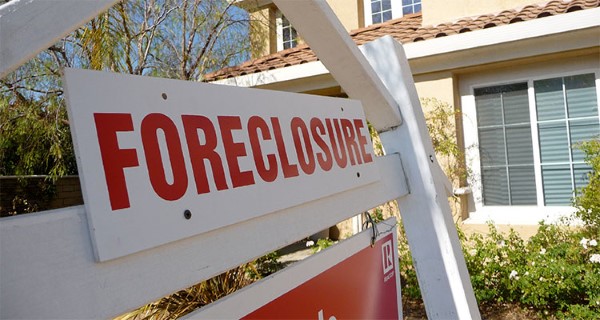EXPERT GUIDE: NAVIGATING FORECLOSURE AND SHORT SALE PITFALLS IN NJ
If you're a homeowner in New Jersey grappling with issues like foreclosure or sheriff sales, the idea of quickly selling your home for cash or taking out an emergency loan might be tempting, but it's crucial to tread carefully. Unfortunately, some opportunists might prey on your tough situation. The following information aims to arm you with knowledge, helping you sidestep some of the more common scams prevalent in our state.
Beware of Deceptive "We Buy Houses" or "Sell Your Home 4 Cash" Practices

Unfortunately, many 'We Buy Houses for Cash' websites don't actually intend to buy your home. Instead, they collect your personal details, like your name and address, under the guise of making you an offer. What they often don't disclose is that these companies are also connected to websites that sell 'Real Estate Leads' to interested parties.
When you share your information hoping to sell your house, these companies treat your details as a commodity to be sold on their lead generation websites. These leads are sought after by eager realtors and investors on the hunt for opportunities. So, rather than getting a straightforward offer for your property, your personal information becomes the item that's actually up for sale.
Some of these services present themselves as national cash buyers, while others pose as local businesses. They use professional-looking websites, overblown offers, enticing postcards, and convincing letters, all with the goal of tricking homeowners into submitting their personal details. After they capture your address, phone number, and email, they sell this information to a range of buyers, including realtors, unchecked investors, and even lawyers.
Here’s how the scam usually works:
- Investors get leads: These deceitful services charge investors a hefty finder’s fee—sometimes between $25,000 and $50,000—if the investor ends up purchasing the property. To offset this fee, the investor is often forced to make a lower offer to the homeowner.
- Realtors buy leads: After you submit your details through an online form, these scam operations sell your information to realtors who aim to convince you to list your property with them. If your home sells, the lead generation site might take a 15% cut of the real estate agent’s commission. These agents are often inexperienced, eager to break into the market, and not carefully selected.
- Lawyers as lead buyers: In some cases, your contact details are forwarded to attorneys who pay the lead site around $400. If the attorney manages to secure a retainer from you, which can cost several thousand dollars, they might try to convince you to file for something like a Chapter 13 bankruptcy.
Since scam lead sites never intended to buy your property, their practices aren’t just misleading—they can also significantly undercut the value homeowners receive for their properties and lead to further financial strain. And, a recent national verdict leaves home seller leads more in demand than ever.
Caution: Wholesalers Disguised as NJ Cash Property Buyers
In the realm of real estate, a growing number of wholesalers present themselves as direct cash buyers, a trend quite evident in New Jersey. These wholesalers often use methods that mirror those of lead generators. An online search for "learn to wholesale houses" will quickly show you countless websites and courses. These resources are designed to teach almost anyone—usually those with no real estate knowledge—how to identify homeowners in distress. Once they locate such homeowners, they then sell this valuable information to genuine cash buyers in New Jersey, often at a high price. Driven by the desire to earn large sums on each transaction, these wholesalers can, unfortunately, add more delays and stress. For homeowners already facing challenges, this can worsen their situation. It's clear that many wholesalers prioritize profit over genuine assistance.
Unmasking the Evasive Strategies of Sham Lead Generators
When engaging with lead site operators within New Jersey's real estate market, you might find they're quick to end conversations. Their brevity often stems from a fear of revealing their true intentions – either they aren't genuine cash buyers but mere lead generators, or they're worried about deeper questions exposing their lack of expertise. Despite their attempts to project a professional demeanor over the phone, it's crucial to see beyond their surface act. Many of these operators don't possess the essential real estate, credit, or finance know-how to adeptly handle complex deals, particularly those concerning foreclosures, sheriff sales, or tax sales.
In contrast, at NJHomeRescue, we prioritize genuine interactions. We're real individuals who make an effort to meet you in person. Unlike those who might rush you off the phone, our aim is for you to comprehensively grasp your situation, understand our offer, and jointly explore a solution that benefits both parties. It's about partnership, transparency, and trust.
The Risk of Relying on Realtors in Turbulent Markets
In periods of skyrocketing mortgage rates and unparalleled inflation, the New Jersey real estate market can become particularly volatile. With fewer buyers actively searching for homes due to these financial constraints, some realtors, eager to secure a deal, might guarantee homeowners a speedy sale as a solution to bypass foreclosure. However, there's a crucial detail that they might omit: a large portion of home buyers in New Jersey, especially those collaborating with realtors, are reliant on securing a mortgage commitment from banks. In an unstable market, this approval process, even for buyers with impeccable credit and financial records, can stretch beyond 60 days.

Realtors, especially those who've reaped substantial commissions during more prosperous times, might find themselves cornered during these challenging market conditions. Having grown accustomed to the steady flow of easy commissions, the sudden market downturn can leave them grappling for income. For many, the hard realization sets in: the lucrative days of real estate might be behind them, prompting a pressing need for a career pivot just to keep up with their own expenses.
This sense of desperation among some realtors, combined with their promises of a quick sale, can unfortunately spell disaster for homeowners. When the stakes are high, homeowners must exercise extreme caution to ensure they're making decisions that genuinely serve their best interests and those of their families.
The Perils of High-Rate Personal Loans
In challenging financial times, predatory lenders often emerge, presenting themselves as saviors with solutions to homeowners' pressing financial needs. Offering personal loans, they promise immediate relief, but the reality is far more sinister. With interest rates soaring as high as 29% – as documented by New Jersey's Department of Banking and Insurance – these loans may seem like a lifeline in the short term. However, they can quickly become a noose.
While the immediate influx of funds might temporarily alleviate financial stress, the exorbitant repayment terms can add an overwhelming burden. For many homeowners, managing their pre-existing bills coupled with the added weight of these high-rate loans soon becomes an insurmountable challenge. And the consequences of non-payment are severe. Lenders can swiftly move to legal action, leading to court-mandated judgments that empower them to garnish wages, seize benefits, and deplete bank accounts.
When considering such high-risk loans, it's crucial for homeowners to think long-term. What might seem like a quick fix now could spiral into a far-reaching financial nightmare down the line. It's always wise to consider all available options and fully understand the ramifications before making a decision.
The LLC Trap: How Some Hard Money Lenders Bypass New Jersey's Fair Foreclosure Act
In the intricate realm of real estate financing, some hard money lenders often stand out, offering fast, short-term loans. However, some craft schemes to sidestep protective laws like the New Jersey Fair Foreclosure Act.
A common maneuver involves convincing borrowers to transfer their property to a Limited Liability Company (LLC). On the surface, it might appear beneficial or procedural. Yet, if repayments falter, the lender labels the loan as commercial, not residential. This classification shift is strategic: they aim to bypass residential protection laws, such as the NJ Fair Foreclosure Act, which mandates proper notice and restricts certain fees.
For the unsuspecting homeowner, consequences can be severe. They risk losing their home faster, with fewer protections, and might face unexpected charges. Before agreeing to any loan terms or making property title changes, homeowners should seek legal or professional advice. Understanding loan implications and potential pitfalls is crucial to avoid being ensnared in such deceptions.
The Hidden Pitfalls of Some Hard Money Lending in New Jersey
In some situations, hard money loans in New Jersey, often characterized by steep interest rates of around 15.9%, are fraught with risks for property owners in urgent need of financing. While they might promise rapid access to cash based primarily on the property's equity, bypassing a borrower's credit history, they are not always as beneficial as they seem. Alarmingly, some hard money lenders do not operate ethically or transparently.
One common deceptive tactic among these lenders is the "bait-and-switch" method. Lenders tempt borrowers with seemingly favorable rates or terms, only to change them unexpectedly and to the borrower's detriment as the loan closure nears.

Equally concerning is the “Fee Collector” strategy, where lenders demand significant upfront fees with no real intention of finalizing the loan. After securing these fees, these deceitful entities disappear, leaving borrowers financially strained and without the promised loan.
To make matters worse, some lenders may even push borrowers to transfer their property deed to a Limited Liability Company (LLC) to sidestep the New Jersey Fair Foreclosure Act. This ploy classifies the loan as commercial, potentially allowing these lenders to impose staggering interest rates, in some cases reaching up to 49%.
Property owners must be cautious. It's imperative to never pay any fees upfront or sign any documents without first consulting a New Jersey-based attorney who is well-versed in the state's finance and foreclosure laws. Such precautionary steps are vital in navigating the murky waters of hard money lending and protecting oneself from potential scams.
Deed Theft Scams: The Dark Side of Homeownership and How to Spot Them
In recent years, the threat of deed theft has grown, with homeowners facing an increasing risk from con artists. These scams have various methodologies, but the underlying objective remains the same: fraudulently transferring property ownership through deceptive tactics or outright forgery.
A deed is a legally binding document that verifies the owner/s of a property. It facilitates the transfer of ownership from a seller to a buyer. Astute fraudsters realize that by illicitly acquiring a deed, they can effectively take control of a house.
These scammers primarily target homeowners in financial distress, like those facing foreclosure or lagging behind on their mortgage or utility bills. Elderly individuals, who often have home equity but survive on a limited income, are particularly susceptible to such fraudulent schemes. Reclaiming the deed of a property can be a complex, prolonged, and costly procedure.
At times, homeowners are deceived into believing they're endorsing a different kind of legal paperwork. As per reports, there have been instances where victims were hoodwinked into signing empty papers under the pretext of securing mortgage modifications. In reality, these documents were utilized to misappropriate their property titles.
In some scam variants, while homeowners might recognize they're transferring their home title, they are misled to believe this change is provisional, intending to refinance or modify their mortgages. Upon title transfer, scammers usually demand "lease" payments from homeowners. Eventually, these con artists evict the original homeowners, usually with the goal of reselling the property for profit.

Additionally, advanced online registry systems can be misused by these fraudsters to file fake deeds. Often, they transfer the title to a Limited Liability Corporation (LLC) to conceal their identity.
Deed theft scams can transform the joy of homeownership into a traumatic experience. To prevent becoming a victim, homeowners must stay vigilant and informed.
Four Indicators of Deed Theft Scams:
- Being urged to transfer your property to another party to mend your credit.
- Receiving aggressive solicitations when behind on mortgage payments.
- Encounters with individuals touting themselves as foreclosure rescue experts, promising to save your property while asking for money up front, refusing to provide proof of their own funds after entering into contract, or requiring you to sign anything before consulting an attorney.
- Being dissuaded from seeking unbiased advice during home-related discussions.
Mortgage Relief Scams: Identifying the Red Flags and Protecting Your Home
Mortgage relief scams prey on homeowners who are struggling with their mortgage payments. The promise is typically a reduced mortgage payment or a halt in foreclosure, but the real aim is to deceive homeowners out of money or even their homes. Being aware of the common signs of these scams can be crucial to safeguarding your finances and property.
Warning Signs of Mortgage Relief Scams:
- Upfront Payment Demands: Scammers often insist on being paid before offering any services. This is illegal in many jurisdictions and should immediately raise suspicions.
- Specific Payment Methods: A scammer might ask for payment exclusively via cashier's check, wire transfer, or mobile payment apps. These methods make it challenging for victims to reclaim their money once it's transferred.
- Deed Transfer Pressure: Convincing homeowners to sign over the deed to their property is a frequent tactic. The deed is a vital document confirming property ownership. Surrendering it can lead to significant losses, as regaining ownership can be both costly and time-consuming.
- Crafty Narratives: Scammers weave compelling stories or offer seemingly lucrative deals to pressure you into parting with your money. Being familiar with their tactics can help homeowners steer clear of their schemes.
- Unsolicited Contacts: Be wary of unsolicited calls, emails, or mail promotions promising mortgage relief. Legitimate institutions rarely approach homeowners without a prior relationship.
- Too Good to Be True Offers: Extremely low-interest rates or guarantees of halting foreclosure irrespective of your financial situation should raise red flags.
- Lack of Credentials: Scammers often pose as representatives of legitimate agencies. Always verify the credentials of any so-called "mortgage relief" organization.
- Avoiding Written Contracts: Any legitimate business will provide a written agreement detailing the services they will provide and their terms. Scammers might avoid this or offer vague, non-committal documents.
- Claims of Special Connections: Scammers might claim they have inside connections or special relationships with banks to make their offers seem more credible. Genuine mortgage relief services do not rely on such claims.
- Discouraging Outside Consultation: If they advise against or discourage you from consulting with an attorney, financial advisor, or your lender, it's a sure sign something is amiss.
Beware of Phony Counseling Scams in NJ: Know the Signs and Protect Your Home
Homeowners often seek counseling when facing challenging financial situations. However, in New Jersey and across the nation, a worrying trend of phony counseling schemes is emerging. These scams prey on vulnerable homeowners with the promise of reducing mortgage payments or averting foreclosure. Here's what you should watch out for:
Signs of a Phony Counseling Scam:

- False Representations: Scammers may claim to be housing counselors, lawyers, or government representatives, often without any verifiable credentials to support these claims.
- Promises to Handle Everything: They might offer to manage all negotiations with your lender, giving false assurances of their expertise and success rates.
- Communication Redirection: One of the most prominent red flags is when they instruct you not to communicate with your lender, attorney, or any credit or housing counselors. A genuine professional would never deter you from seeking advice or updates from legitimate sources.
- Payment Diversion: They might insist that you redirect your mortgage payments to them instead of your lender. Such redirection often leads to default since they don't forward your payments to the lender.
- Deed Transfer: Transferring the deed to your property is a significant decision. If they suggest this, it's a glaring sign of a potential scam. Always consult with an independent NJ-based attorney before considering such a move.
- Going MIA: Once they have your money, these scammers typically become hard to reach, stop returning calls, and disappear with your funds.
- Unlicensed Lawyers: Even if they have an attorney on their team, it's crucial to verify if that lawyer is licensed to practice in New Jersey. Just because they employ a lawyer doesn't make their services legitimate or justify upfront fees.
Added Precautions for New Jersey Homeowners:
- Verify Credentials: In New Jersey, you can check a professional's credentials, including whether a lawyer is licensed to practice, through state regulatory bodies.
- Seek NJ-Based Counsel: If you're facing mortgage difficulties, consider seeking advice from a New Jersey-based housing counselor or attorney who's familiar with NJ-specific housing laws and regulations.
- Beware of Upfront Fees: New Jersey has regulations against charging upfront fees for certain mortgage assistance services. Familiarize yourself with these to avoid falling victim.
The Dangers of Forensic Audit Scams: What Homeowners Need to Know
Some scammers pretend to be expert auditors and lawyers, saying they'll go through your mortgage papers to spot lender mistakes. They promise that if they find anything wrong, they can get rid of your mortgage, and they charge a lot for this promise. But be careful—these claims are often too good to be true, and the idea that your mortgage can just be erased is usually not correct.

What Scammers Offer with Forensic Audits:
- Promises of Detailed Reviews: These scammers claim they'll meticulously review your mortgage documents, checking for compliance with various laws. They suggest that identifying such discrepancies can benefit you significantly.
- Assurances of Faster Relief: They often guarantee that their "audit" will expedite loan modification processes or even reduce the amount you owe.
- Loan Cancellation Temptations: Some go as far as to assert that these audits can lead to the cancellation of your loan altogether.
The Hard Truth About Forensic Audits:
- No Guarantees: Scammers can't genuinely ensure that a forensic loan audit will result in any tangible mortgage relief for homeowners.
- Limited Legal Benefits: While certain federal laws allow homeowners to sue lenders for mistakes in loan documents, winning such a lawsuit doesn't guarantee loan modification. If the loan is canceled, the borrower still must return the borrowed funds, potentially risking their home.
- Unfulfilled Promises: Even if discrepancies are found, lenders are under no obligation to alter your loan to make it more affordable or extend repayment durations.
Stay Informed and Protected:
For comprehensive details on mortgage relief scams and how to guard against them, the Federal Trade Commission (FTC) provides a valuable resource on typical scams. Homeowners are urged to familiarize themselves with the information available on their platform.
Rent-to-Buy Schemes in New Jersey: Proceed with Caution
In the ever-evolving New Jersey housing market, homeowners must stay vigilant against deceptive practices like the Rent-to-Buy scams. These schemes take advantage of homeowners' financial vulnerabilities, especially their fears surrounding foreclosure.
Here's the typical pitch from Rent-to-Buy scammers: they approach distressed homeowners with an offer that, on the surface, seems to alleviate their concerns. They'll suggest that if the homeowner transfers the deed of their home over to them, they'll obtain the necessary financing to stave off foreclosure. Moreover, they assure homeowners they can remain in their dwelling, painting a picture where rent payments contribute to an eventual repurchase of the home.
However, beneath this reassuring exterior lie several pitfalls:

- Even after transferring the deed, homeowners are still on the hook for their mortgage payments. Simply put, giving up your home's deed doesn't free you from mortgage obligations.
- Once scammers have the deed, they gain the power to sell your home. This not only means they can pocket the sale's proceeds but also any equity the homeowner has accumulated over time.
- Although they might promise to sell the home back to the original owner, the terms they present often make repurchasing nearly impossible. Over time, these scammers might increase the rent, and if the homeowner misses a few payments, eviction soon follows. With the original owner out of the picture, the scammer is free to capitalize on the property's sale.
To safeguard against these malicious tactics, always ensure that any rent-back agreement is legally documented with explicit terms. Trusted organizations like NJHomeRescue provide homeowners with a written and signed agreement detailing all the terms of any such agreement. Before making any decision, always consult with an attorney to review the fine print.
Navigating Bait-and-Switch Loan Schemes in New Jersey: What Homeowners Should Know
In New Jersey's bustling real estate landscape, homeowners must be cautious of the infamous Bait-and-Switch or “Rescue” Loan schemes. Under the guise of assistance, these scammers approach distressed homeowners with the promise of securing them a more favorable "rescue" loan to bring their mortgage payments up-to-date. However, in a high-pressure setting, they hand over a stack of documents for the homeowner to sign immediately, often discouraging a thorough review. Hidden among these papers is a deed transfer, granting the scammer ownership rights to the property. Once the deed is in their possession, they can sell the property and pocket the proceeds, leaving the original homeowner facing eviction and still liable for the original mortgage. New Jersey residents should always read and understand any document before signing and should consider seeking legal advice when approached with such "rescue" offers.
Discerning Genuine from Fraudulent Lawyers in New Jersey: Proceed with Caution
In the intricate realm of mortgage and foreclosure in New Jersey, homeowners facing challenges often seek legal assistance, seeing lawyers as their beacon of hope. But caution is essential. While many lawyers operate with integrity, some may not prioritize clients' best interests. Alarmingly, deceptive practices like "mass joinder lawsuits" may mislead homeowners. Key signs of potential deceit may include promises of guaranteed results or unusual upfront fees. Vetting and verifying lawyer credentials through the state bar is crucial for homeowners.
Short Sale Scams in New Jersey: What You Need to Know
When attempting a short sale in New Jersey – selling your home for less than the mortgage balance – it's imperative to be aware of potential scams that can trap unsuspecting homeowners. Here's a concise guide to understanding these scams and how to steer clear of them:

1. Undisclosed Payments: In short sales, especially with multiple creditors, lenders are reimbursed in a hierarchical manner. While the primary mortgage lender is settled first, junior mortgage holders may receive little to none. Sometimes, to facilitate the sale, the primary lender might offer extra compensation to the junior lender. Any such offer must be disclosed in the loan settlement statement during the sale. Non-disclosure of such agreements equates to criminal fraud in New Jersey. It's essential because undisclosed payments can be misleading and underhandedly manipulate other lenders.
2. Flopping: A buyer might undervalue a property to both the homeowner and the lender, causing the homeowner to conduct a short sale at a significantly reduced price. Post-purchase, the buyer can resell at a higher market rate, yielding a sizeable profit. This scam leaves both the homeowner and lender at a loss.
3. Predatory Short Sale Negotiators: Some individuals pose as "short sale negotiators," promising homeowners a better selling price. After charging an upfront fee, these scammers might vanish without providing the services guaranteed. Several states, including New Jersey, mandate licensing for short sale negotiators. Before engaging, always validate their credentials through reputable agencies like the Better Business Bureau (BBB), Consumer Financial Protection Bureau (CFPB), Federal Trade Commission (FTC), and the New Jersey Attorney General’s office.
Short Sale Fraud Indicators in New Jersey: Short sale fraud, generally a deceptive practice within a short sale transaction, can be identified by various red flags:
- Promises sounding too good or unqualified guarantees.
- Disinterest in significant sale terms or seller's financial condition.
- Transactions involving non-owners or under certain specific laws.
- Multiple sales contracts for a single property.
- Upfront payment demands or unconventional payment methods.
- Immediate actions without adequate document review time.
- Non-provision of signed document copies or written confirmations.
- Discouraging contact with the short sale lender or advising against seeking counsel.
- Overly smooth or nonsensical explanations.
Understanding Short Sale Scams: Short sales in New Jersey can be intricate, extending over months, making them susceptible to scams. Financially distressed sellers, eager to evade foreclosure, may lack the means to consult experts on the nuances involved in short sales. Coupled with personal challenges like job loss or health issues, they become easy targets for scammers offering seemingly immediate solutions.
In conclusion, while short sales can offer relief from foreclosure, homeowners in New Jersey should remain vigilant, conducting thorough due diligence and seeking expert advice when necessary. Awareness and vigilance are crucial to avoid falling victim to these scams.
Collaborating for a Brighter Future
For New Jersey homeowners considering a quick cash sale for their property, NJHomeRescue offers a reliable option rooted in integrity. Firmly opposing any scams, we have a background in real estate sales, acquisition, realty, mortgage finance, and credit restoration. Beyond financial gains, we value genuine connections with NJ homeowners. As real individuals, we prioritize open dialogue and are always open to discussing the best ways to collaborate directly at your property. Let's work together towards a beneficial solution.
Index of Typical Schemes and Scams
In the end, knowledge truly is power. Familiarizing yourself with some of the endless creative scams plaguing homeowners can save you from a devastating situation. Here is a wrap-up of the top 20 most prevalent NJ foreclosure frauds:
- Phantom Foreclosure Counseling: Scammers charge fees for "services" like negotiating with lenders, which they never perform.
- Bait-and-Switch: The homeowner believes they're signing documents to get a new loan, but they're actually signing over the deed.
- Rent-to-Buy Schemes: Homeowners transfer the deed with the belief they can rent and repurchase the property later, but terms are altered or ignored.
- Upfront Fee Scam: Asking homeowners to pay fees upfront for mortgage assistance that is never provided.
- Rescue Loan Scam: Scammers promise to replace the homeowner's default loan with a new one, but there's a hidden catch.
- Auditing Services Scam: Fraudsters charge a fee to audit your mortgage documents, claiming it will help you delay foreclosure or reduce your loan.
- Short Sale Scams: Scammers offer to negotiate a short sale with a lender, asking for fees upfront and never delivering on the service.
- Leaseback/Equity Skimming: Homeowners are deceived into signing over the deed with the promise they can lease and eventually buy it back.
- Bankruptcy Foreclosure: Scammers promise to negotiate with lenders during the bankruptcy delay, but nothing is done to save the home.
- Mortgage Payment Scams: Homeowners are told to redirect mortgage payments to a scammer entity instead of the lender, with the promise it'll be used for a new loan.
- Fake Government Affiliation: Scammers claim to be affiliated with government programs to gain trust.
- Masquerading as a Legal Firm: Scammers pose as lawyers or legal firms, offering fake or non-existent legal services.
- Mass Joinder Lawsuit Scams: Homeowners are lured into joining fake lawsuits against lenders with false promises of financial relief.
- Forensic Audit Scams: Scammers offer to have legal experts or auditors review mortgage documents for errors, charging a fee and providing no real help.
- Fake Negotiation Scams: Scammers pretend to negotiate with lenders while advising homeowners to stop mortgage payments.
- Dual Tracking: Lenders pursue foreclosure while simultaneously negotiating loan modifications, leading to unexpected sale of property.
- Inflated Fee Scam: Scammers charge homeowners for unnecessary work or tack on additional fees for basic services.
- Title Theft: Scammers deceive homeowners into signing over their property title, then sell the home or take out additional mortgages.
- Unlawful Third-Party Fees: Scammers set up fake companies to "service" homeowners, charging illegal third-party fees.
- Misrepresentation of MARS (Mortgage Assistance Relief Services) Rule: Scammers might mislead homeowners by falsely claiming they are affiliated with MARS or are exempt from its rules.
NJ Resources for Homeowners Facing Foreclosure
American Credit Alliance, Inc.
26 South Warren Street
Trenton, NJ 08608
(609) 393-5400
Atlantic Human Resources, Inc.
1 South New York Avenue
Atlantic City, NJ 08401
(609) 348-4131
Catholic Charities of the Diocese of Metuchen
540-550 Route 22 East
Bridgewater, NJ 08807
(908) 722-1881
Citizen Action (Offices statewide)
400 Main Street
Hackensack, NJ 07601
1-800-NJOWNER
Consumer Credit Counseling Service of Central New Jersey
117 Estates Boulevard
Trenton, NJ 08610
(609) 585-8220
Consumer Credit Counseling Service of New Jersey
185 Ridgedale Avenue
Cedar Knolls, NJ 07927-1812
(973) 267-4324
Fair Housing Council of Northern New Jersey
131 Main Street
Hackensack, NJ 07601
(201) 489-3552
Family Service Association of Atlantic County
312 E. White Horse Pike
Absecon, NJ 08201
(609) 652-4100
Garden State Consumer Credit Counseling, Inc.
225 Willowbrook Road
Freehold, NJ 07728
1-800-992-4557
Housing Coalition of Central Jersey
78 New Street
New Brunswick, NJ 08901
(732) 249-9700
Jersey Counseling & Housing Development, Inc.
29 South Blackhorse Pike
Blackwood, NJ 08012
(856) 227-3683
Jersey Counseling & Housing Development, Inc.
1840 South Broadway
Camden, NJ 08104
(856) 541-1000
Mercer County Hispanic Association
200 E. State Street – 2 nd Floor
Trenton, NJ 08607
(609) 392-2446
Middlesex County Economic Opportunities Corporation
1215 Livingston Avenue
North Brunswick, NJ 08902
(732) 846-6600, ext. 226
Monmouth County Human Services
Housing Services Unit
P.O. Box 3000
Freehold, NJ 07728
(732) 431-7998
Morris County Fair Housing Council
65 Spring Street
Morristown, NJ 07963
(973) 538-2975
Ocean Community Economic Action Now, Inc.
10 Washington Street
Toms River, NJ 08753-0773
(732) 244-2351, ext. 14
Paterson Coalition for Housing, Inc.
262 Main Street, 5th Floor
Paterson, NJ 07505
(973) 684-5998
Paterson Task Force for Community Action, Inc.
155 Ellison Street
Paterson, NJ 07505
(973) 279-2333
Tri-County Community Action Agency, Inc.
110 Cohansey Street
Bridgeton, NJ 08302
(856) 451-6330
Urban League for Bergen County
106 West Palisade Avenue
Englewood, NJ 07631
(201) 568-4988
Urban League for Essex County
508 Central Avenue
Newark, NJ 07101
(973) 624-9535
Urban League of Union County
288 North Broad Street
Elizabeth, NJ 07208
(908) 351-7200
Homelessness Prevention Program
New Jersey Department of Community Affairs
(609) 633-6204*
We are Here to Help
For New Jersey homeowners considering a quick cash sale for their property, NJHomeRescue offers a reliable option rooted in integrity. Firmly opposing any scams, we have a background in real estate sales, acquisition, realty, mortgage finance, and credit restoration. Beyond financial gains, we value genuine connections with NJ homeowners. As real individuals, we prioritize open dialogue and are always open to discussing the best ways to collaborate directly at your property. Let's work together towards a beneficial solution.

